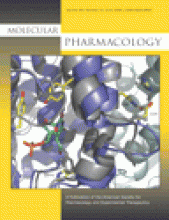Abstract
Orazipone is a novel sulfhydryl-reactive compound that has been previously shown to reduce lung eosinophilia in guinea pigs and rats and to inhibit degranulation in mast cells and cytokine production in monocytes and T-cells. However, the effects of orazipone on granulocyte longevity are unknown. Orazipone and its derivative 3-(4-chloro-3-nitro-benzylidene)-pentane-2,4-dione (OR-2370) reversed interleukin-5-afforded survival of human eosinophils by inducing apoptosis. In contrast, orazipone did not affect granulocyte macrophage-colony-stimulating factor-induced survival of human neutrophils. The effect of orazipone on eosinophil apoptosis is different from that of glucocorticoids in that even high con-centrations of interleukin-5 were not able to overcome the effect of orazipone. Orazipone further enhanced spontaneous apoptosis as well as that induced by CD95 ligation without inducing primary necrosis. OR-2370-induced DNA fragmentation was shown to be dependent on caspases 3 and 6 and c-jun-N-terminal kinase, whereas extracellular regulated kinase, p38 mitogen-activated protein kinase, and phosphatidylinositol 3-kinase as well as caspases 4, 8, and 9 seem not to mediate its actions. Our results suggest that orazipone and its derivative OR-2370 possess strong antieosinophilic activity and thus may have anti-inflammatory efficacy in the treatment of asthma and/or allergic conditions.
- Received November 25, 2005.
- Accepted March 15, 2006.
- The American Society for Pharmacology and Experimental Therapeutics
MolPharm articles become freely available 12 months after publication, and remain freely available for 5 years.Non-open access articles that fall outside this five year window are available only to institutional subscribers and current ASPET members, or through the article purchase feature at the bottom of the page.
|






